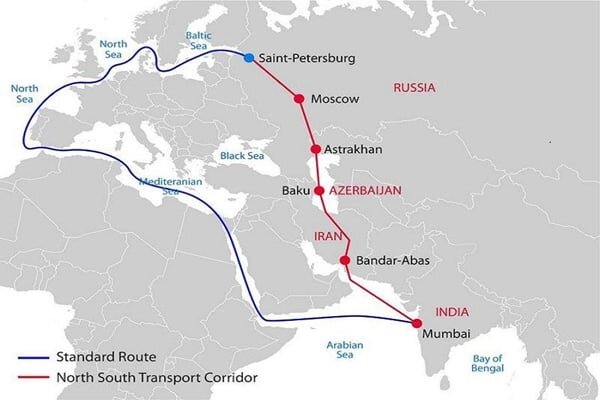Russia has sent two trains laden with coal to India via the eastern branch of International North-South Transport Corridor (INSTC) for the first time, as per reports.
- Trains will bring coal to Bandar Abbas Port of Iran.

About INSTC
- A 7,200-km multimodal transportation network, links Indian Ocean to North Europe via Iran and Russia's Saint Petersburg.
- Objective: To enhance trade and transport connectivity among countries along its route.
- Envisaged in 2000 by Iran, Russia and India.
- Currently, 13 countries are its members such as Azerbaijan, Armenia, etc.
- Bulgaria has joined as an Observer State.
- Consists of the 3 corridors, namely, Central, Western and Eastern.
Why INSTC is important for India?
- Enhance Connectivity to Central Asia: Provides greater ease and more cost-effective transport facilities.
- Provide an alternative route to the Suez Canal trade route.
- Reduces transit times to around 25 days from the usual 45 days via the Suez Canal route and reduced freight costs by 30%.
- Energy Security: INSTC bypassing vulnerable choke points like the Red Sea and Strait of Hormuz.
- Also, enhances access to energy-rich Central Asia, Arctic, Nordic and Baltic region.
- Other: Counters China-led Belt and Road Initiative (BRI), etc.







